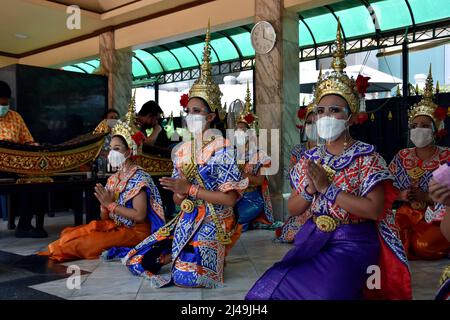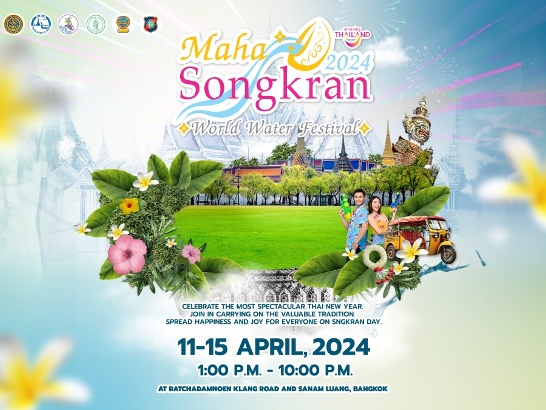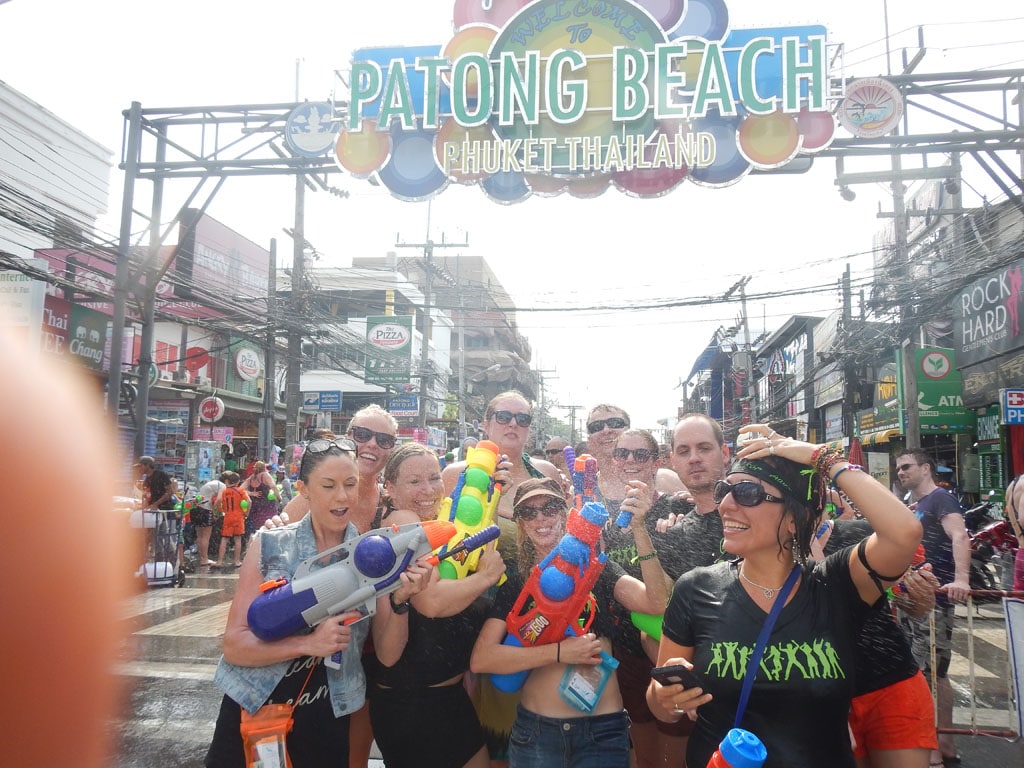Have you ever wondered, “What is Songkran Festival?” If you are unfamiliar with this vibrant and joyous event, get ready to be immersed in the rich traditions and celebrations of the Thai New Year. The Songkran Festival is not just any ordinary festival; it is a time-honored tradition that symbolizes renewal, cleansing, and the welcoming of a prosperous new year. During this annual event, the streets come alive with water fights, colorful parades, and elaborate ceremonies. Join us as we unpack the essence of the Songkran Festival, explore its cultural significance, and delve into the various customs that make this festival a truly unforgettable experience.

Today's #GoogleDoodle in Thailand celebrates the Songkran Festival and Thai New Year: https://t.co/7dDNtUlc2E pic.twitter.com/9Pg2l3mx8F
— Google (@Google) April 13, 2016
Introduction to Songkran Festival
Songkran Festival, often referred to as the Thai New Year, is a traditional festival celebrated in Thailand to mark the beginning of the solar year. The festival usually takes place from April 13th to 15th each year.
Origins of Songkran
Songkran has its roots in ancient traditions and customs where people honor the elders and pay respects to Buddha’s statues by pouring scented water over them. This act symbolizes the washing away of sins and bad luck, bringing forth a fresh start and blessings for the new year.
Celebratory Activities
During Songkran, you can witness vibrant water fights, where locals and tourists alike joyfully splash water on each other as a way to cool down from the scorching heat of the summer season. The streets come alive with music, parades, and traditional performances.

History and Origins of Songkran Festival
Songkran is the Thai New Year’s national holiday. It is one of the most popular festivals in Thailand, known for its water fights that symbolize cleansing and the washing away of bad luck. The festival usually takes place from April 13 to 15.
Origins
The origins of Songkran can be traced back to ancient traditions in India, where people would sprinkle or pour scented water on each other as a sign of respect and good fortune. This practice eventually made its way to Southeast Asia and evolved into the modern-day Songkran festival.
Cultural Significance
Songkran holds immense cultural significance in Thailand, symbolizing new beginnings, purity, and the washing away of sins and bad luck. It is also a time for families to gather, pay respects to elders, and make merit at temples.
The festival typically includes religious ceremonies, parades, traditional performances, and of course, the iconic water fights that draw locals and tourists alike.
Traditions and Customs during Songkran
Songkran, the Thai New Year festival, is known for its exuberant water fights symbolizing purification and the washing away of bad luck. Traditional customs during Songkran include paying respects to elders by sprinkling scented water on their hands as a gesture of blessing and seeking forgiveness for past transgressions.
Water Splashing
One of the most popular traditions is the water splashing, where people roam the streets with water guns and buckets, drenching each other in a fun-filled celebration of the festival.
Participants often wear colorful Hawaiian shirts and floral garlands to signify joy and renewal.
Offerings and Temple Visits
During Songkran, families visit temples to make offerings, attend ceremonies, and pour water over Buddha statues as a sign of respect and cleansing.
Many temples organize merit-making activities to accumulate good karma during the festival.
Significance and Symbolism of Songkran
Songkran, also known as the Thai New Year, holds great significance and symbolism in Thai culture. It marks the beginning of the traditional Thai New Year and is a time for cleansing, renewal, and rejuvenation.
Spiritual Cleansing
In Thai culture, Songkran is not just a water festival but also a time for spiritual cleansing. People visit temples to make merit, offer food to monks, and participate in traditional religious ceremonies to wash away past sins and bad luck.
During this time, water is used as a symbolic element to clean both physically and spiritually, allowing individuals to start the new year with a fresh perspective and a purified soul.
Community Unity
Songkran promotes community unity and harmony as people come together to celebrate the festival. The act of splashing water on each other symbolizes not only the cleansing of negativity but also the sharing of blessings and good wishes for the upcoming year.
- Family Reunion: It is a time when families reunite to pay respects to their elders and ancestors, fostering bonds and strengthening relationships.
- Social Harmony: The festival transcends social barriers, bringing people of all ages and backgrounds together in joyous celebration.

Celebrations and Festivities of Songkran
Songkran, also known as the Thai New Year, is a vibrant and joyous festival celebrated in Thailand. The festival usually falls between April 13th to 15th each year.
Water Splashing Tradition
One of the most iconic aspects of Songkran is the water splashing tradition, where people joyfully splash water on each other to wash away bad luck and sins from the previous year.
Street Processions and Parades
During Songkran, vibrant street processions and parades take place with traditional dances, music, and colorful costumes, adding to the festive atmosphere.
In 2021, due to the ongoing global situation, traditional celebrations might have adapted to ensure the safety of all participants.

Modern-Day Observances and Changes
As the Songkran Festival evolves with time, modern-day observances and changes have started to influence the traditional celebration. The essence of the festival, rooted in spirituality and respect, remains intact, but there are noticeable adaptations to accommodate contemporary lifestyles.
Integration of Technology
In recent years, the integration of technology has become prominent during Songkran. People now use social media platforms to send digital greetings and connect with loved ones, embracing modern communication methods while preserving the spirit of togetherness.
Utilizing digital devices has become a common practice for sharing festival experiences and coordinating meetups during this auspicious time.
Environmental Consciousness
With growing environmental awareness, many communities have started eco-friendly initiatives during Songkran. This includes promoting the use of organic colors for water splashing, reducing plastic waste, and organizing clean-up drives after the festivities.
- Encouraging sustainable practices fosters a cleaner and greener festival environment, aligning with the global call for responsible consumption and environmental protection.
Impact of Songkran Festival on Thai Culture
The Songkran Festival, known as the Thai New Year Water Festival, holds immense cultural significance in Thailand. It is a time when family and friends come together to celebrate and pay respects to elders.
Preservation of Traditions
The festival is deeply rooted in traditional values and customs, emphasizing the importance of respect, unity, and gratitude. Songkran serves as a reminder of the rich heritage that the Thai people hold dear. This reinforces the cultural identity.
Spiritual Renewal
Another vital aspect of Songkran is its spiritual significance. The festival is an occasion for cleansing and purification, symbolizing the washing away of the past year’s misfortunes and embracing a fresh start.
- Pouring scented water over Buddha statues and onto the hands of monks is a common ritual during Songkran.
Frequently Asked Questions
- What is the Songkran Festival?
- The Songkran Festival is the Thai New Year’s traditional celebration that takes place annually from April 13 to April 15. It is known for its water fights and is one of the most exhilarating festivals in Thailand.
- How is the Songkran Festival celebrated?
- The Songkran Festival is celebrated with water fights, where people splash water on each other as a symbol of washing away bad luck from the previous year and welcoming the new year with a fresh start. It is also a time for family reunions and paying respect to elders.
- What are some traditional customs associated with Songkran?
- During the Songkran Festival, people may visit temples to make merit, pour scented water over Buddha statues, and participate in parades. It is also common for younger individuals to ask for blessings from older relatives by pouring water over their hands.
- Where is the Songkran Festival celebrated?
- The Songkran Festival is primarily celebrated in Thailand, but it is also observed in other Southeast Asian countries such as Myanmar, Laos, and Cambodia. The festival’s popularity has even spread to other parts of the world with significant Thai populations.
- Are there any specific dishes or foods associated with the Songkran Festival?
- During the Songkran Festival, people enjoy traditional dishes such as Khao Chae (rice soaked in jasmine-scented water), Kanom Jeen (rice noodles with curry sauce), and various types of Thai desserts. These dishes are often shared with family and friends during this festive period.
Final Thoughts
As we reach the end of this comprehensive guide on the Songkran Festival, it is evident that this Thai New Year celebration is not just a water festival but a deeply symbolic and joyous occasion. From its origins as a way to cleanse and refresh the soul to the modern-day exuberant water fights, Songkran carries with it rich cultural traditions and values of respect, unity, and renewal. It is a time of joy, reflection, and community bonding. So, whether you are planning to participate in the festivities or simply want to learn more about this vibrant festival, remember that Songkran is a time to embrace new beginnings and celebrate life. Happy Songkran!